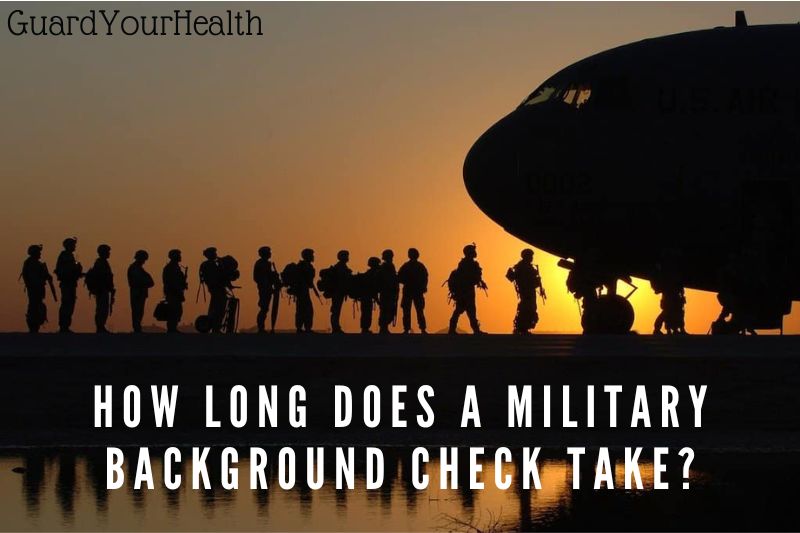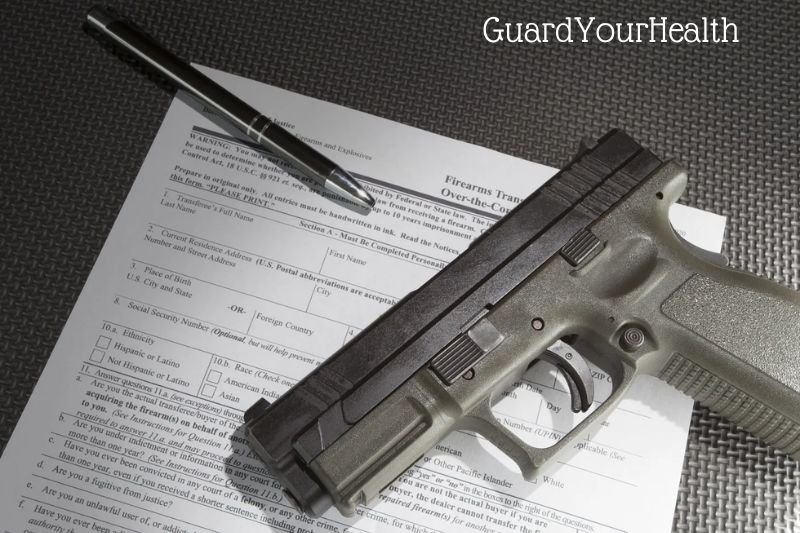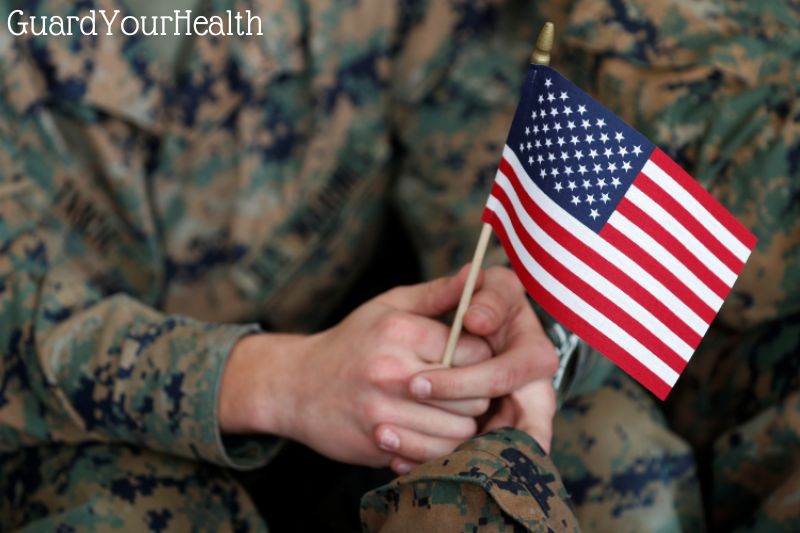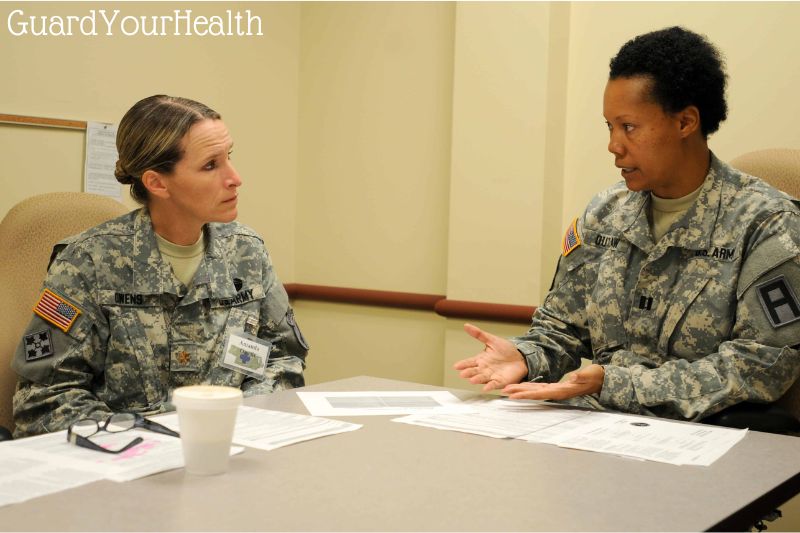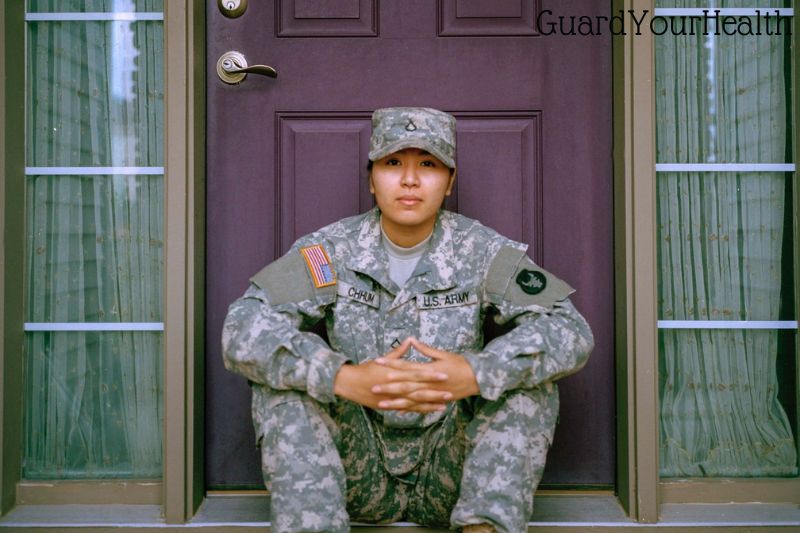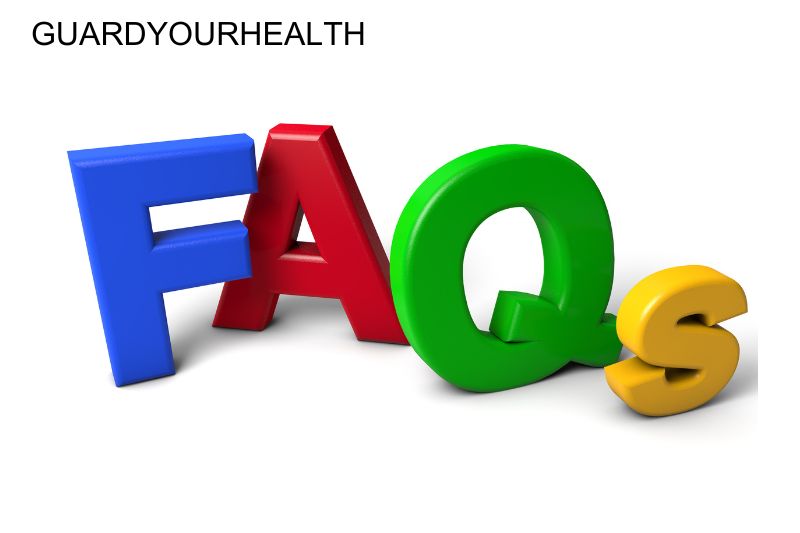The time it takes to conduct a background check can vary depending on the sort of check you need and why you need it. The waiting period may be affected by a variety of internal, external, and even legal circumstances.
Regardless of whether you want a personal criminal background check or a pre-employment check, you should always be ready for additional delays that could lengthen the processing time.
Below is the answer to the question how long does a military background check take? And much other useful information you need to know.
What Is Covered by a Background Check from the Military?
The military may check a candidate’s or recruit’s background since they don’t want a failure.
This person is one who:
- Produces poor-quality work
- Possesses a bad attitude
- Doesn’t get along with coworkers or military personnel
- Doesn’t get along with customers or superiors
- Lacks the necessary skills
- Has issues with attendance or attitude
- Is dishonest
The hardest question is the final one for criminals.
Even if they are now determined to lead a moral life, their criminal history may present a challenge when they apply for a job or enlist in the military.
The military could think:
- Credit reports
- Driving records
- Educational records
- Criminal offenses
The military uses background information to assess a candidate’s:
- Past mistakes
- Character
- Financial fitness
The military is able to identify threats to security and safety issues as a result.
A background check’s criminal record review includes looking through criminal history files for any criminal crimes, which will identify all convictions and non-convictions, even cases that were dropped or that were never brought to trial.
A non-conviction will appear for seven years, but convictions can be recorded at any time.
If convicts have their records wiped, their offenses will not appear on a background check.
How Long Does a Military Background Check Take?
To prove their suitability as candidates, every recruit must submit to a fundamental background investigation. You will undergo a background investigation here through MEPS, which stands for Military Entrance Processing Station.
You must pass the ASVAB (Armed Services Vocational Aptitude Battery) to demonstrate your military readiness. The DoD created a timed test for it. The maximum score you can receive on this test is 99, although each military branch has distinct minimal standards.
You must have a minimum score of 31 to join the Army. Each MOS, or military occupational specialty, will have a separate set of requirements.
You must have a minimum score of 35 to join the Army. Depending on the post, there are various demands, just like in the Army. You must also have a minimum of 35 points to join the Marine Corps. The minimum score will need to be greater for more technical occupations.
To be eligible for the Air Force, you must have a score of at least 31 if you are a high school senior or recent graduate.
Read more: Why Do People Join the Military? Reasons Not To Join The Military
The ASVAB comes in three different versions:
- CAT-ASVAB: You take this exam at MEPS on a computer. You have 154 minutes to respond to 145 questions.
- MET-Site ASVAB: This test is administered on paper at satellite sites (for those who cannot physically make it to MEPS). There are 225 questions in all. You have 149 minutes to complete it.
- Student ASVAB: You take this test in school to explore your career options.
You can practice taking the ASVAB at home to get ready for success.
You will also need to go through a comprehensive physical examination after the ASVAB. You’ll probably be subjected to a drug test here. Additionally, there will be a pregnancy test available for ladies.
Before attending MEPS, discussing your medical history with a recruiter is crucial because some problems can be excused.
The application process is not overly rigorous and stringent for entry-level military posts. Additionally, you won’t need to obtain a security clearance. However, you can only be hired for higher-level employment involving sensitive national security material if you have a sufficient security clearance.
What Does Military Background Check Include?
Military Background Check on Job Applicants
All individuals applying for employment or to join the military have their backgrounds checked by the military.
Background checks are fairly stringent in the military.
This is due to the fact that many military posts require access to sensitive national security information.
An extensive background investigation is required for any position requiring a federal security clearance.
Background checks are necessary for all positions, even entry-level ones that don’t require security clearances, to make sure that the applicant is “reliable, trustworthy, of good character and conduct, and if total and unshakable devotion to the United States.”
Depending on the role, the background investigation will vary in scope.
Any refusal to provide a response will result in disqualification or employment refusal.
The majority of military background checks entail a face-to-face interview so the candidates can defend their responses.
All federal workers, including military personnel, are required to submit fingerprints and be checked against the FBI criminal database.
Depending on the position, additional background checks, including drug tests, may be required.
Any background check requiring a security clearance is laborious and complex.
An in-depth interview is part of the security clearance background investigation.
The applicant, their spouse, friends, neighbors, teachers, employers, and professional references will all be interviewed by the government.
Military Background Check on Recruits
All prospective military members are asked to complete a questionnaire regarding their background, including any criminal convictions and drug use in the past.
Any applicant for military service must pass a thorough FBI background check.
This process begins at the military admission processing station (MEPS) and includes a thorough background investigation on all levels—federal, state, and local.
A person’s criminal history does not automatically preclude them from serving in the military.
To enlist with a criminal background, a waiver of admission must be acquired.
A waiver of admission will not be granted for all infractions.
These transgressions include:
- Family conflict
- Felonies with no pardons
- Abusing drugs
- Financial and credit difficulties
- Anyone found guilty of a domestic violence offense is prohibited from having access to or ownership of a firearm.
Anyone convicted of a domestic violence violation is ineligible to serve in the military unless their rights have been restored, they have received a pardon, or their criminal record has been wiped.
Anyone who has previously experienced money or credit issues, as well as trouble enlisting in the military or receiving a security clearance because they are viewed as being vulnerable to extortion and bribery.
A background check for military security will look at a variety of data, including:
- Past identifiers and aliases
- Earlier addresses
- For the previous three years, previous employers
- Credit inquiry
- A criminal record
- Driving history review
Regarding being barred from duty due to criminal history, each branch of the military has its own set of rules.
Along with physical requirements, the Army, Navy, Air Force, and Marines have moral standards.
The military does not owe any citizen the chance to enlist. Thus, anyone with a criminal past can be excluded.
The privilege of serving in the military is widely regarded.
An interview with a recruiter serves as the initial step in determining a recruit’s criminal past.
The interviewer will enquire about any criminal background.
Any minor traffic infractions must be included in the criminal history.
This includes information from crimes committed when a person was a minor as well as records that have been sealed or purged.
If a recruit lies about their criminal history, they risk harsh repercussions and felony charges for filling out a false application.
Military Background Check Waiver
For several offenses, a waiver may be granted, including:
- Civil offenses
- Misdemeanors
- Minor non-traffic-related charges
- A combination of minor and misdemeanor charges
- A single serious misconduct felony charge
If there have been repeated crimes, the waiver decision will consider them along with any proof that the candidate has learned from the consequences of those offenses.
There is no waiver available in the following situations:
- Being inebriated or drugged while enlisting or being discharged from the military due to drug or alcohol usage
- Marijuana use in the past or a drug-selling conviction
- Three or more convictions for drunk driving
- Being subject to a legal restraint such as parole, probation, or another kind
- Other than for traffic offenses, numerous major civil convictions
- Obtaining an unfavorable or dishonorable discharge
A waiver is unnecessary if a person is detained but not charged with five or more misdemeanors, resulting in a disqualifying status.
Additionally, no waiver is necessary if the charges were dropped without a guilty verdict.
It’s challenging to get a waiver if you’ve committed a felony.
The definition of a felony offense in the military is unique.
This might not be the same as the definition in a person’s state.
Anyone joining the military should be morally upright.
The moral character enlistment requirement seeks to limit admittance of anyone who could pose a security danger, be disruptive, or become a disciplinary case:
- Order
- Morale
- Discipline
Military candidates must pass a credit and criminal history check as well as a moral character assessment.
This procedure searches for criminal histories, credit problems, or records of a juvenile adjudication.
The following sorts of people are not acceptable for service under the set moral standards:
- Anyone who is subject to a court constraint of any kind, such as a bond, probation, jail sentence, or parole
- Those with serious criminal histories
- Any offender found guilty without a waiver
- Anyone who served in the military in the past but received a less-than-honorable discharge
- Anyone who has demonstrated antisocial behavior or other qualities that disqualify them from interacting with military troops
The military considers letters of recommendation regarding the applicant’s character or suitability for enlistment as well as details about the offense’s circumstances while processing a waiver request.
Trustworthy local authorities, such as pastors, school administrators, and law enforcement officers, must write these letters.
Can You Run a Background Check on Yourself?
It will be possible for you as a criminal to know exactly what will be found when the military conducts its evaluation if you conduct a background check on yourself before applying for a position with or entering the military.
Any queries can be directed to an attorney by a felon.
It is crucial to act and not take a chance on the outcomes.
A felon may do various types of personal background checks:
- From the court where they were charged
- A credit report can be used to assess someone’s financial responsibility.
- For any employment requiring driving, such as a truck driver, driving records
- Through the National Student Clearing House, an educational report.
There are resources available to assist with background checks for individuals.
The best opportunity for a felon to join the military or land a job there is to have his or her record cleared.
Tips for Success with the Military
The following tips can help a felon improve his or her prospects of getting a job or joining the military:
- Prepare for the interview by arriving early
- Make a good impression on the interviewers right away.
- Speak clearly and make a case for the new position.
- Highlight your relevant experience and abilities.
- Be prepared to present a current resume together with an employment history.
- If the subject of a felony conviction arises, don’t conceal it.
Instead, state the facts of that conviction without evoking any feelings.
Lying on a job application regarding one’s past is never a good idea.
If the military learns about it, you might not be given consideration for the position, and you might face legal action for making a false application.
Focus on your qualifications for the position by emphasizing your strongest qualifications during the interview.
Accept responsibility for your past behavior and describe your steps to organize your life.
By conducting your own background investigation, you may find out what information an employer will see about you.
Keep in mind that your crime does not define who you are.
You must be prepared to live an honest life and open to changing how you view yourself.
Having the support of family and friends is the first step to being successful in a new life.
Read more: How To Get Out Of The Military And Be Successful
FAQs
How long does a Navy background check take?
7-10 days a lot of the background checks can take longer that the suggested 10 days. It all depends on the persons history. Whether they incurred a ticket in another state. Depends on how the interview goes
How far back does the navy background check go?
Your profile will be checked for information going all the way back to 10 years. You should also expect to sit through an extensive interview. For this, be ready to answer any questions. Failure to disclose may raise red flags or automatically disqualify you
When does the military do a background check?
For instance, some military personnel with a “Top Secret” security clearance must go through the background check process every five years. A person with a lower-tier “Confidential” security clearance may only need to renew that clearance with a new military background check every 15 years
Conclusion
In summary, the military thoroughly investigates the backgrounds of every prospective recruit. The length of a military background check depends on the security clearance required for your position.
Depending on how busy the recruitment office is, background checks for basic entry-level military posts won’t take more than two weeks.
High-level security clearance positions take much longer to fill. Spanning anything between two and six months, looking at every little aspect of your life.

